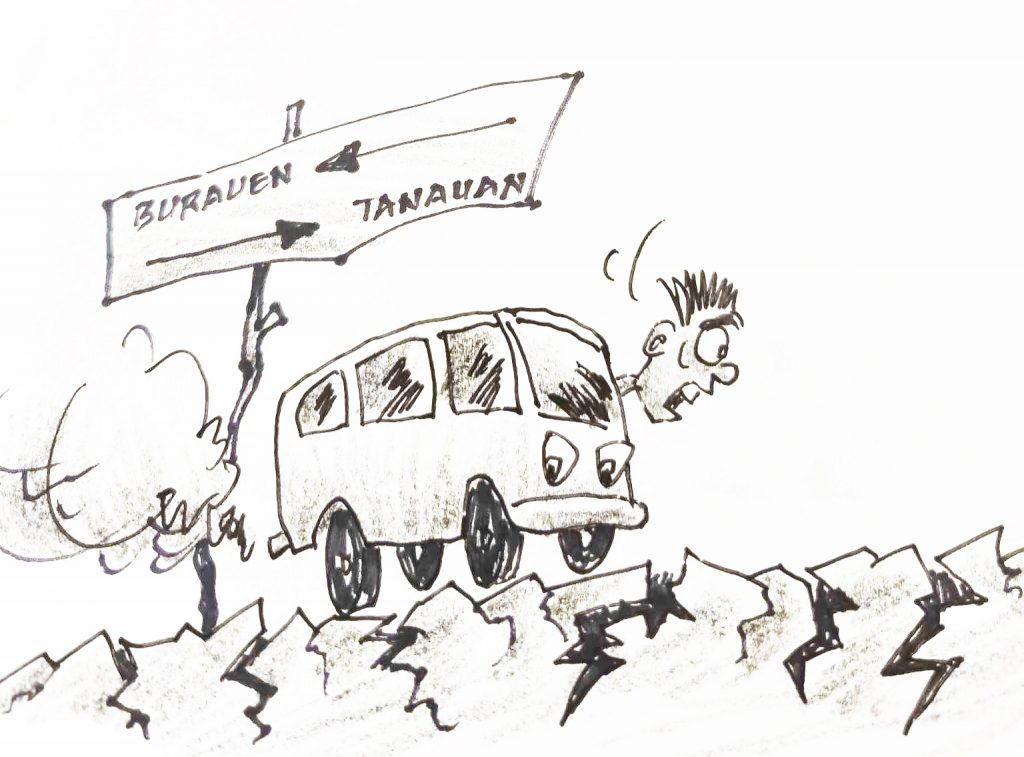The highway connecting Tanauan to Burauen is fast deteriorating into a dangerous stretch of broken asphalt and deep fissures. The situation is unacceptable, and the Department of Public Works and Highways must be held to account for this glaring neglect.
What used to be a vital road for commuters and cargo transport has now turned into a nightmare of craters and uneven surfaces. Some cracks are so wide and deep that even experienced drivers slow to a crawl or swerve abruptly to avoid them. However, these evasive maneuvers have become just as deadly—they could result in side swipes, near collisions, and even vehicles veering off the road, showing that the danger now lies not only in the damage itself but in the human response it provokes.
The mandate of the DPWH is clear: to ensure roads are safe, functional, and well-maintained. The Tanauan-Burauen route is not some obscure back road; it is a provincial artery that connects communities, sustains local economies, and links people to basic services. Allowing it to decay to this extent signals more than mere inefficiency—it betrays a lack of urgency and concern for public safety. When a government agency fails in its fundamental duties, the consequences are not just logistical—they are life-threatening.
Motorists now face a cruel dilemma: brave the route and risk their vehicles or their lives, or take costly detours that sap time, fuel, and energy. Public transportation operators suffer delays and incur repair expenses, farmers and market vendors endure prolonged travel, and emergency vehicles are slowed in moments where every second counts. This is not just an inconvenience—it is a disruption of public life, a hazard to welfare, and an indictment of governance.
The solution must begin with visibility and accountability. The DPWH must inspect, evaluate, and act immediately, not in months, but in days. Clear signage, temporary fixes, and proper coordination with local government units can minimize further damage and accidents. More importantly, rehabilitation plans must be transparent, budgeted, and enforced. The people of Leyte deserve roads they can travel on safely and with dignity.




